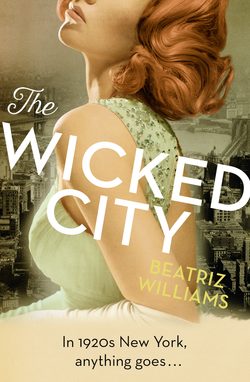Читать книгу The Wicked City - Beatriz Williams, Beatriz Williams - Страница 17
10
ОглавлениеANSON DRIVES me back to Christopher Street himself. He doesn’t say much, just busies himself with the matter of negotiating the narrow, cold streets, the patches of slush and garbage. The buildings are tense and shuttered, as if laid under siege. The brakes squeal faintly in front of the Italian grocery.
“What have you done with Christopher?” I ask.
“Christopher?”
I jerk my head. “The owner.”
Anson’s thumbs meet at the top of the steering wheel. “I expect he’ll have to go up in front of a judge. Pay a fine.”
“And what about me? Do I have to see a judge?”
“No. You’re free. For now, anyway.”
I look over his shoulder, through the window. It’s begun to snow: the minute, tender flakes at the vanguard. “You know he’ll be back in business tomorrow night. A week at the most.”
“I know that. It’s not him I’m concerned with.”
“You can’t stop any of it. You’ll die trying.”
“Maybe I will.”
“A fellow wants a drink, he’s going to have it.”
Anson lifts his hands from the wheel and sets the brake. Reaches inside the pocket of his overcoat and produces a calling card.
“You’ll telephone me if you change your mind?”
“If I change my mind? Why, sure.”
“Take the card, then.”
“I don’t need to.” I tap my forehead.
“Now, that’s funny. An hour ago you could scarcely remember your own name. Now you’ve got a photographic memory.”
“When I need it.”
He presses the card into my hand. “Take it anyway. In case someone knocks you on the head and gives you a spell of amnesia.”
“Does that happen often in your line of work?”
“All the time.”
I pinch the wee board between my two fingers and study it again. The plain Roman letters. Oliver Anson. Exchange and number. By the time I’m finished, Anson’s opened the door of the automobile and strode around the hood to let me out.
“Thanks. I can find my way from here.”
“I’m escorting you inside, Miss Kelly.”
“No, you’re not.”
“Statistically speaking, it’s the most dangerous time of night.”
“No kidding? Then I guess I must be statistically dead by now.”
He shuts the car door behind me and straightens. His gaze falls on my chin, which sticks right out there into the Manhattan night, at an angle those nuns used to abhor.
“All right. Good night, Miss Kelly. Thank you for your time.”
“Don’t mention it.”
My shoes slip and clatter on the paving stones. The headlights flare against the glitter of my dress, against the tiny whir of snowflakes. I reach the sidewalk and the door. Pull out my latchkey, like any modern, independent girl in New York City. The snow coats the stoop like a layer of dust, and mine are the first footprints. The knob turns, and I remember something.
“Anson! Your jacket.”
“Keep it.”
I shrug the garment from my shoulders and trip back down across the sidewalk to where Anson stands next to the driver’s-side door, in his overcoat and a plaid muffler, probably cashmere wool, like the girls at college used to wear, only sleeker. Hat pulled down low over that slanting forehead. The car’s parked right in the middle of two street lamps, nice and dark, so I can’t see his face all that well.
I say, “No, you take it. Or else you’ll be coming back for it, won’t you? And that wouldn’t do at all.”
He takes the jacket and folds it over his arm, while the snow stings my bare skin and lands in my hair. And you know something? For a single crazy instant, I imagine myself asking him upstairs. You know. For a cup of coffee or something. Chase away the winter.
Anson nods, like he’s imagining the same thing. His hand reaches out to land on my shoulder, and the leather feels wet on my skin, cold: the fresh, sweet meltwater of New York snowflakes.
“Now get inside before you freeze to death.”
